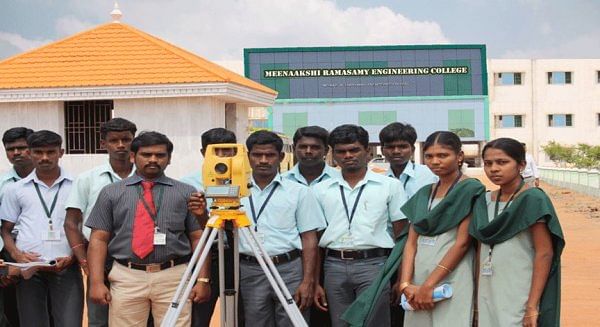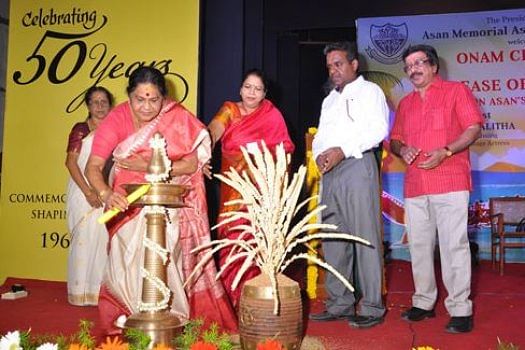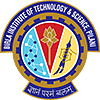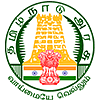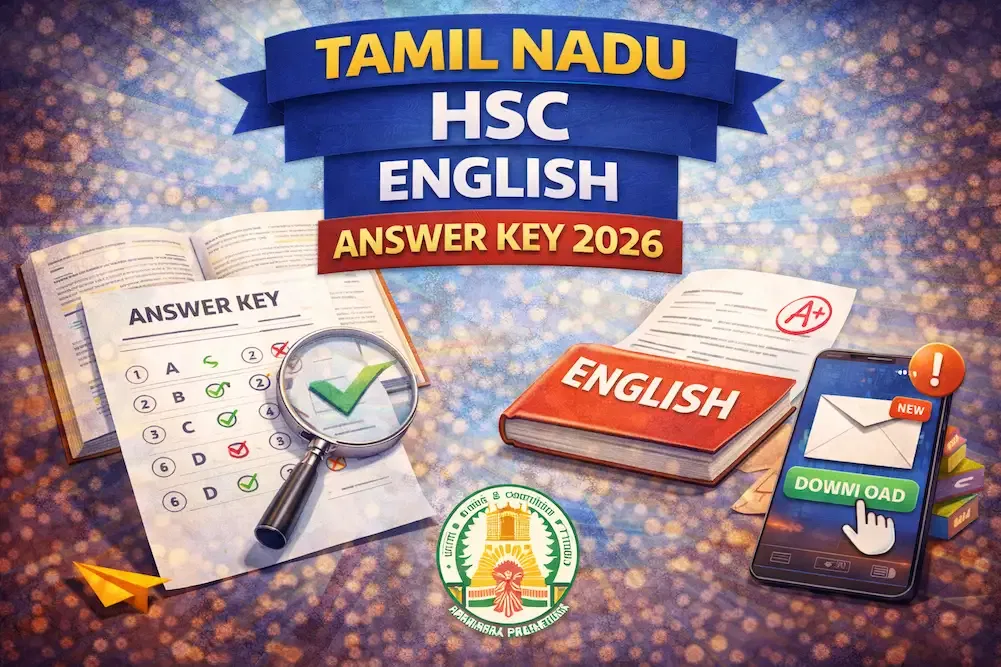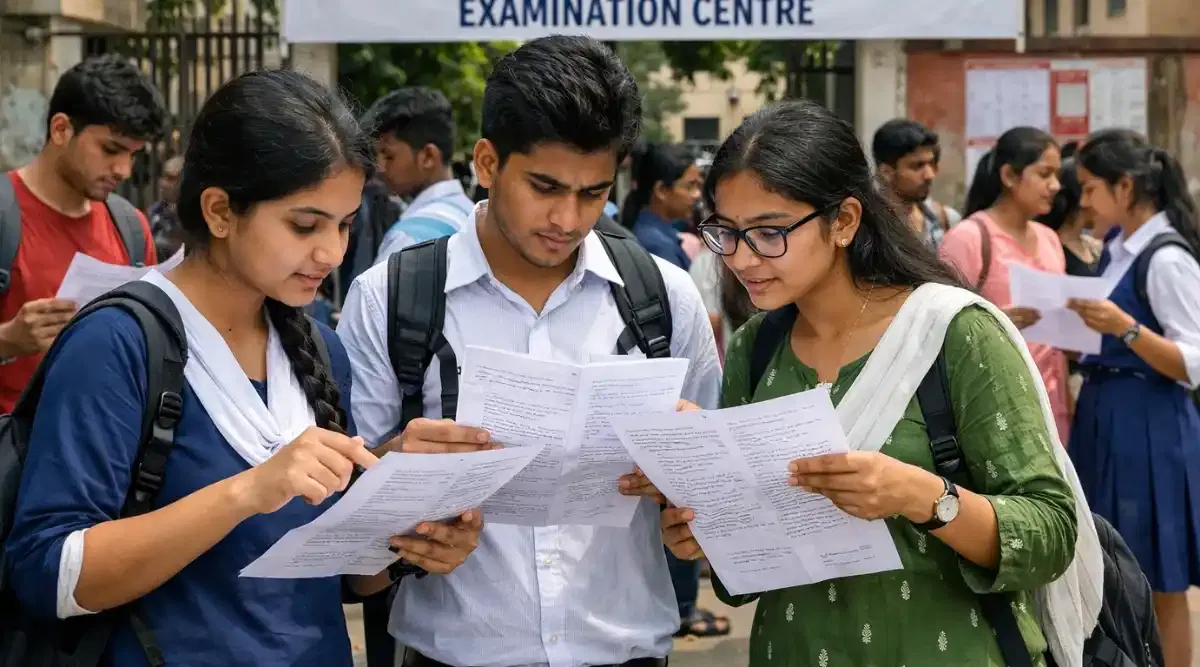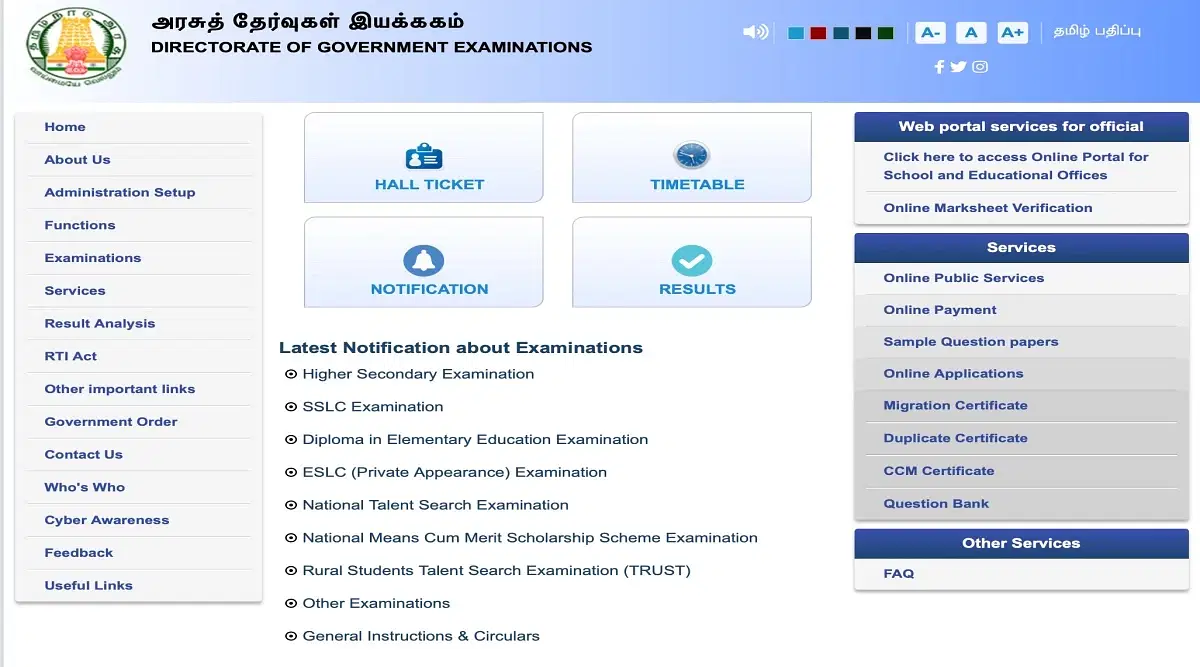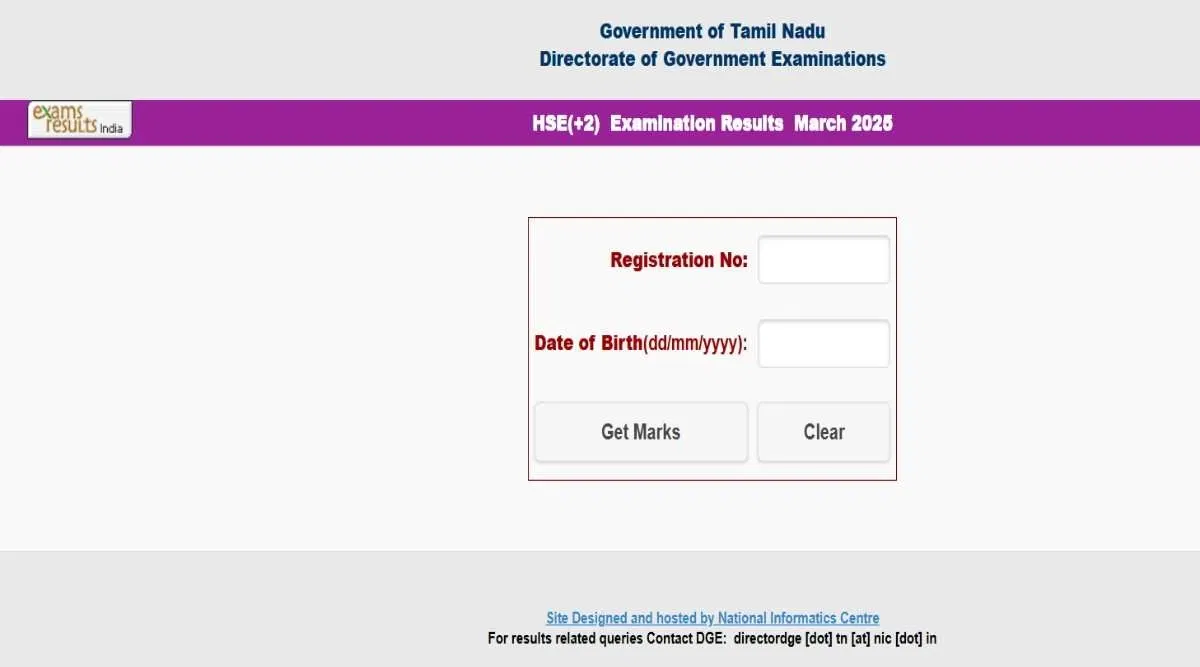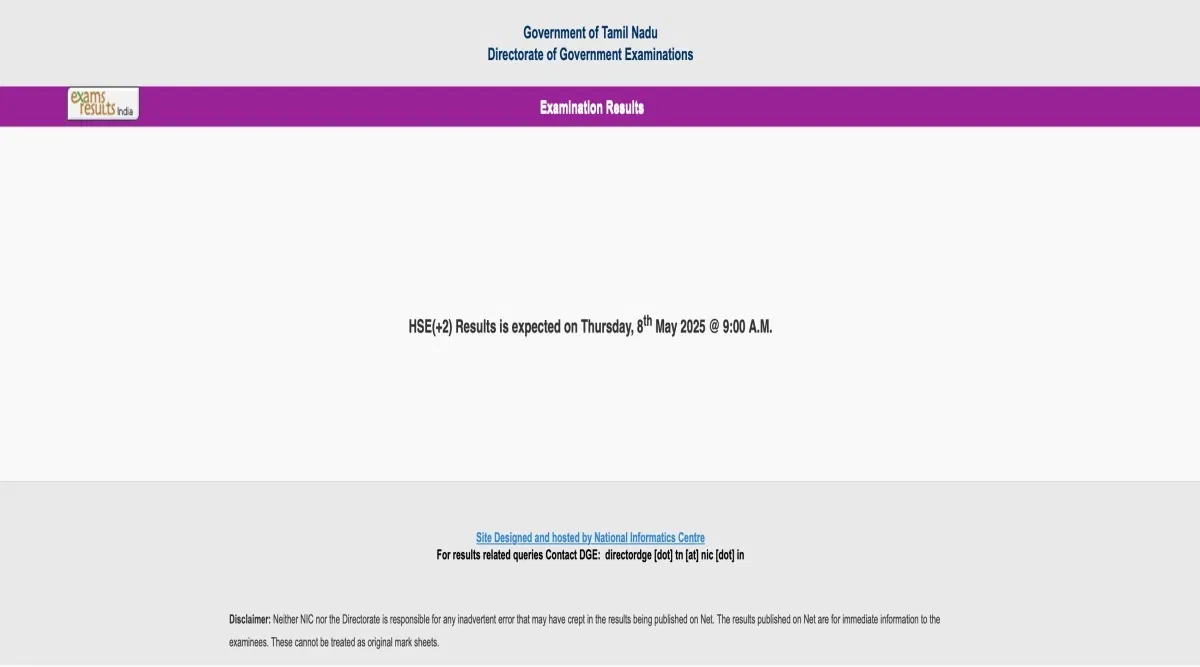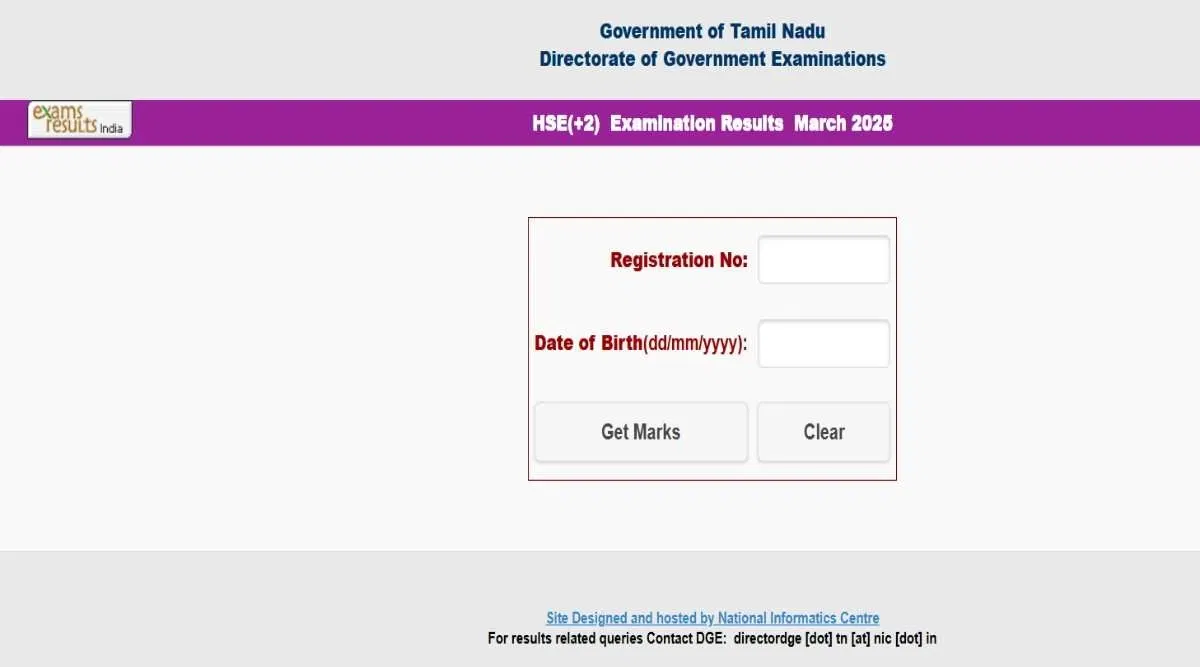Tamil Nadu Class 12 Political Science Latest Syllabus 2024-25: Download Latest and Revised Tamil Nadu Class 12th Political Science Syllabus PDF
Table of Contents
- TN Board Class 12th Political Science Syllabus
- How to Download TN Board Class 12th Political Science Syllabus
- Important Topics for TN Board Class 12th Political Science Syllabus
- Best Books for TN Board Class 12th Political Science Syllabus
- Preparation Tips for TN Board Class 12th Political Science Syllabus
The TN Board twelfth elegance has launched the reviewed syllabus of Political Science with consistent incidents and a converting political state of affairs. Consequently, the content of the course has reformed many rudimentary principles of politics, structures of governance, worldwide members of the family, and other distinguished factors that have proven important for higher understanding by the students.
Also Read: TN 12th board
TN Board Class 12th Political Science Syllabus
|
Chapter Number |
Name of Chapter |
Topics Included |
|
Chapter 1 |
Constitution of India |
Historical background, Features of the Constitution, Preamble, Fundamental Rights and Duties, Directive Principles, Amendments |
|
Chapter 2 |
Legislature |
Parliament, State Legislature, Legislative-Process, Roles and Functions, Lawmaking, Types of Bills, Committees |
|
Chapter 3 |
Executive |
President of India, Vice President, Prime Minister, Cabinet Ministers, State Executives, Chief Ministers, Governor, Role and Functions |
|
Chapter 4 |
Indian Judiciary |
Structure of Indian Judiciary Supreme Court High Courts Judicial Review Judicial Activism Public Interest Litigation |
|
Chapter 5 |
Federalism in India |
Meaning of Federalism, Centre-State Relations, Division of Powers, Role of Finance Commission, Cooperative Federalism |
|
Chapter 6 |
Administrative Machinery in India |
Bureaucracy, Functions of the Civil Services, Role of IAS, IPS, and other All India Services, Public Accountability, Role of NITI Aayog |
|
Chapter 7 |
Challenges of Nation-Building |
Integration of Princely States, Reorganization of States, Language Issues, Secularism, Regionalism, and Communalism |
|
Chapter 8 |
Planning and Development Politics |
Five-Year Plans, Role of Planning Commission, Economic Reforms, Privatisation, Liberalisation, Public Sector and Private Sector |
|
Chapter 9 |
India and the World |
India's Foreign Policy, Non-Aligned Movement, India's Role in International Organizations: UN, WTO, Indian members of the family with global brilliant-powers. |
|
Chapter 10 |
India and its Neighbours |
Relations with Pakistan, China, Bangladesh, Sri Lanka, Nepal, Bhutan, Maldives, Border Issues, Trade and Cooperation |
|
Chapter 11 |
International Organizations |
United Nations, World Trade Organization, International Monetary Fund, World Bank, ASEAN, BRICS, India's Role in These Organizations |
|
Chapter 12 |
Environmental Concerns and Globalization |
Climate Change, Global Warming, Globalization: Meaning, Effects on Economy and Society, Sustainable Development |
How to Download TN Board Class 12th Political Science Syllabus
Download the procedure from the supply web page:
- Open the principal website of the TN board via www.Dge.Tn.Gov.In.
- Click the 'Syllabus' link on the home web page.
- Pick the 'Class 12' from the given list.
- Select 'Political Science' from the listing above.
- Download the PDF.
Read More: Tamil Nadu 12th Exam Pattern 2025
Important Topics for TN Board Class 12th Political Science Syllabus
Some of the topics with approximate weightage in the final examinations are as follows:
- Chapter 1: Constitution of India (15% weightage)
- Background History Features of the Constitution Preamble Fundamental Rights and Duties Directive Principles Amendment This bankruptcy may be very important as it paperwork the very foundations of the political machine of India.
- Chapter 2: Legislature (10% weightage)
- Key regions: Structure and running of Parliament, State Legislature, Legislative system, Types of payments, Roles and features of committees. A key focus for college students: The regulation-making technique.
- Chapter 3: Executive (10% weightage)
- Key regions: The following heads are especially dealt with: President of India, Prime Minister, Chief Ministers, Governor, Council of Ministers, Powers, and features of executive roles at each valuable and state level.
- Chapter 4: Indian Judiciary (12% weightage)
- Key regions: Structure of the Judiciary, Supreme Court, High Courts, Judicial Activism and Public Interest Litigation. A lot had to be understood about the function and powers of the judiciary earlier than assessments.
- Chapter 5: Federalism in India (10% weightage)
- Key regions: Meaning and feature features of Federalism Centre-country relations Division of powers Cooperative federalism. Special cognizance at the praxis of Indian federalism.
- Chapter 6: Administrative Machinery in India (8% weightage)
- Key areas: Bureaucracy, Civil offerings (IAS, IPS, etc.), Public Accountability, and Role of NITI Aayog. The chapter is mainly tremendous to recognize the extent to which policies are applied currently.
- Chapter 7: Challenges of Nation Building (7% weightage)
- Key regions: Integration of the Princely States, State reorganization, Language controversies, Secularism, and Communalism cognizance on submit-independence troubles in India.
- Chapter 8: Planning and Development Politics (8% weightage)
- Key regions: The Five-Year Plans, Economic Reforms, Role of the Planning Commission, NITI Aayog, Privatization, Liberalization, and Public Sector vs. Private Sector roles are a few key areas.
- Chapter 9: India and the World (7% weightage)
- Key regions: India's Foreign Policy, Non-Alignment Movement, the role of India in worldwide businesses just like the UN and WTO, and India's members of the family with the superpowers like USA, Russia, and China.
- Chapter 10: India and its Neighbours (5% weightage)
- Major regions: Relations with Pakistan China Bangladesh Sri Lanka Nepal Bhutan Maldives Border issues Trade and Cooperation Geo-political issues in the sub-continent.
- Chapter 11: International Organizations (4% weightage)
- Core areas: United Nations, WTO, IMF, World Bank, SAARC, ASEAN, BRICS, and the role of India in them. Understanding is a must as that decides on the placement of India in a worldwide political framework.
- Chapter 12: Environmental Concerns and Globalization (4% weightage)
- Key areas: How globalization has affected India, Climate exchange problems, Global warming, Environmental moves, and Sustainable development. Reveals the relationship of environmental issues with political and global changes.
All these subjects are relevant to the examinations and, consequently, should be focused on during your revision.
Best Books for TN Board Class 12th Political Science Syllabus
All the books given below carry the complete updated syllabus of Class 12th Political Science.
- Indian Government and Politics by B.L. Fadia - Eighth Edition
- Political Science: Concepts and Theories S.P. Verma – 6th Edition
- Introduction to the Constitution of India' by using Durga Das Basu – 23rd Edition
- International Relations by V.N. Khanna - fifth edition
- "Modern Indian Political Thought" by V.R. Mehta - 4th Edn.
Also Read: TN 12th question paper 2025
Preparation Tips for TN Board Class 12th Political Science Syllabus
So right here are some pointers for non-public coaching for the elegance 12th political technological know-how examination:
- Constitution: Of direction, there are a few fundamental provisions of the Indian Constitution which maximum college students could discover necessary to most topics.
- Current affairs: Follow the information with the aid of analyzing newspapers and looking at news channels frequently to find a connection between the syllabus with international politics.
- Use diagrams and flowcharts: For example, use diagrams even to make comprehension more intelligible in terms of the shape of government.
- International Relations: The query associated with international businesses and India's overseas policy will convey weightage.



![Bharathidasan Institute of Technology, [BIT] Anna University, Tiruchirappalli](https://media.getmyuni.com/azure/college-image/small/bharathidasan-institute-of-technology-bit-anna-university-tiruchirappalli.jpg)
